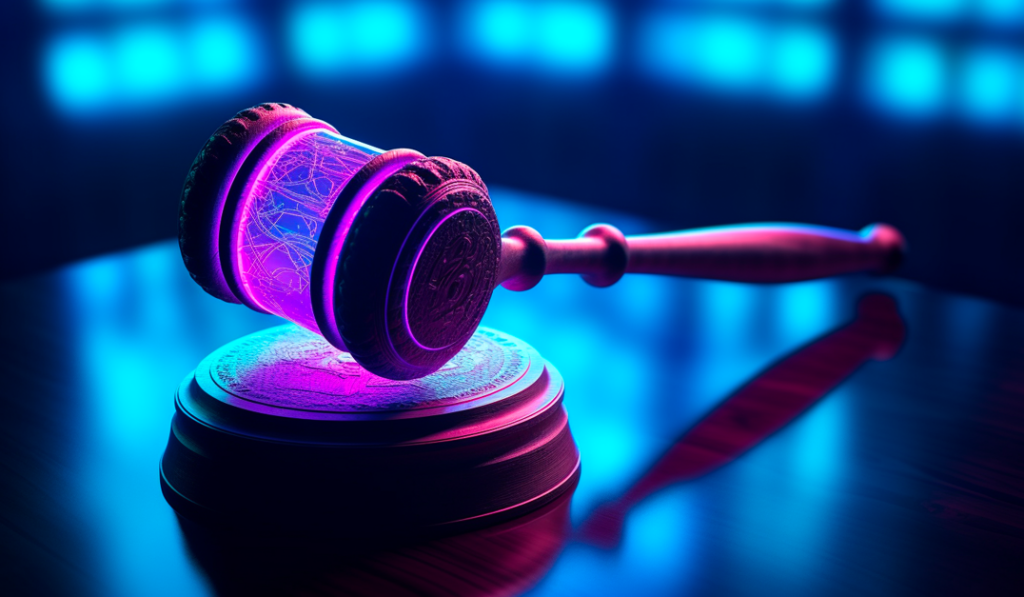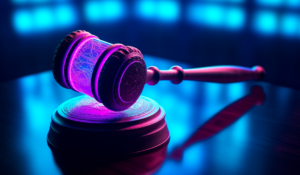In a landmark ruling, a New York court has sided with decentralized crypto exchange Uniswap, setting a precedent that could potentially influence the ongoing legal battle between Coinbase Global Inc. and the securities regulators.
A Shield for Decentralized Exchanges
Uniswap faced legal action from crypto users who sought to hold the platform accountable for the financial losses they incurred from purchasing what they termed as “scam tokens” on the exchange. This lawsuit marked one of the pioneering attempts to apply U.S. securities laws to a decentralized exchange.
Judge Katherine Polk Failla of the U.S. District Court for the Southern District of New York dismissed the lawsuit last week, establishing that under the prevailing law, Uniswap was not responsible for the users’ purported losses. This verdict has been hailed as a substantial victory for decentralized exchanges that facilitate crypto trading without an intermediary.
Implications for the Coinbase Case
The ruling not only grants decentralized exchanges a legal shield but also offers a glimpse into Judge Failla’s perspective on the interplay between crypto and securities laws. This insight is crucial as Judge Failla is also presiding over the Securities and Exchange Commission’s (SEC) lawsuit against Coinbase, a case with the potential to redefine the industry.
While the Coinbase case presents different facts and issues, Judge Failla’s reluctance to extend the reach of federal securities laws from the bench and her emphasis on the need for Congress to enact new laws to address the existing regulatory gaps could potentially bode well for Coinbase.
A Glimpse into Judge Failla’s Approach
The lawsuit against Uniswap was initiated in April 2022 by a resident of North Carolina who alleged widespread fraud on the popular exchange. The class action aimed to represent all individuals who purchased tokens on Uniswap since April 2021.
Judge Failla noted that the plaintiffs were essentially seeking a scapegoat, given the anonymity and untraceability of the alleged fraudsters. She emphasized that it was not the court’s role to stretch federal securities laws to cover the alleged conduct, urging the plaintiffs to look to Congress for redress.
A Ripple Effect in the Crypto Industry
The Uniswap ruling is part of a series of legal developments favoring the crypto industry. Recently, the U.S. Court of Appeals for the D.C. Circuit overturned the SEC’s decision to block a proposed Bitcoin exchange-traded fund by Grayscale Investments LLC, terming the agency’s decision as arbitrary and capricious.
Furthermore, another New York federal judge ruled that the offerings of Ripple Labs’ XRP token to the general public did not constitute securities, a decision currently contested by the SEC.
A Call for Prudent Investment
While celebrating the ruling as a “huge victory,” Uniswap’s chief legal officer, Marvin Ammori, highlighted the victory’s significance for crypto world and software developers. On the flip side, the court acknowledged the “identifiable injury” suffered by the crypto users, underscoring the imperative of conducting diligent research before investing in crypto assets.
The ruling draws parallels with protections afforded to social media platforms against liabilities arising from user posts, emphasizing that decentralized exchanges should not be held liable for the actions of individual bad actors utilizing their platforms.
As the crypto industry navigates these legal waters, the Uniswap ruling stands as a beacon of hope, signaling a judiciary hesitant to stretch existing securities laws to govern crypto products and services, and recognizing the onus on Congress to address the regulatory gaps.









